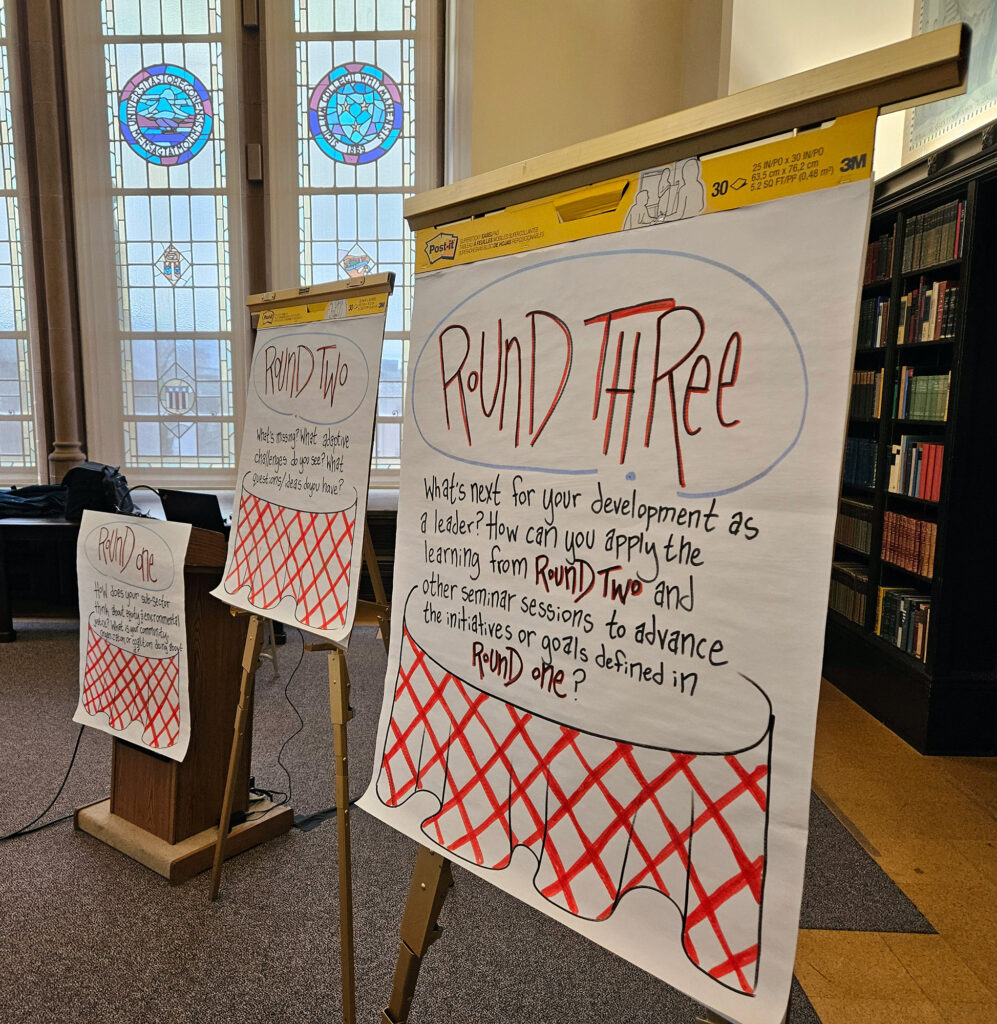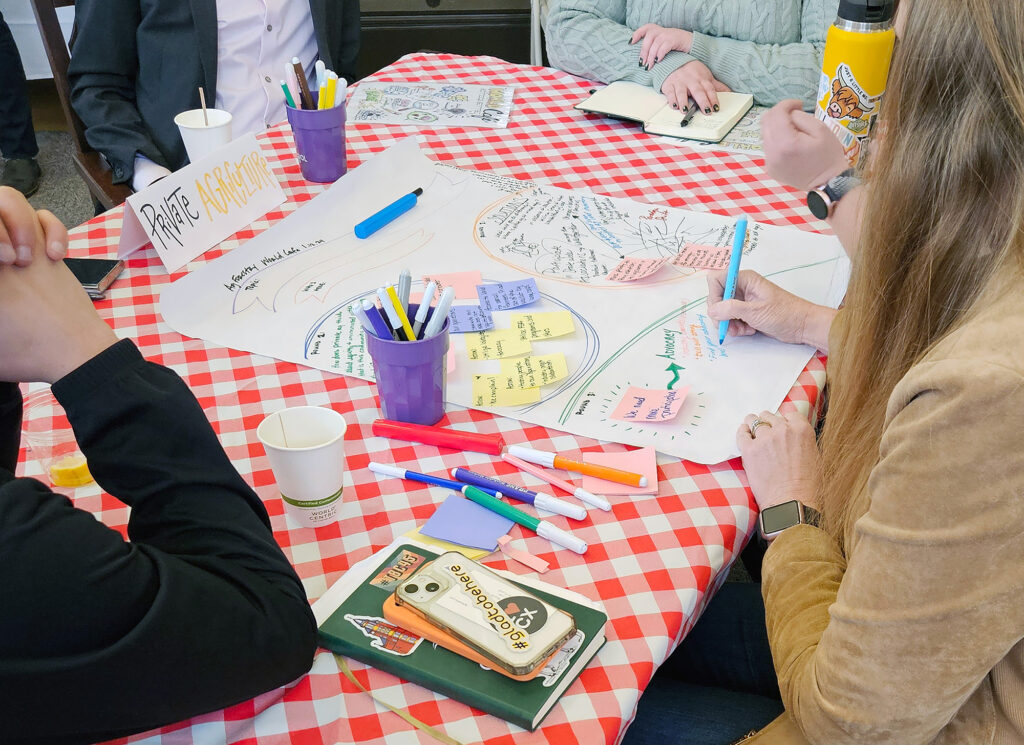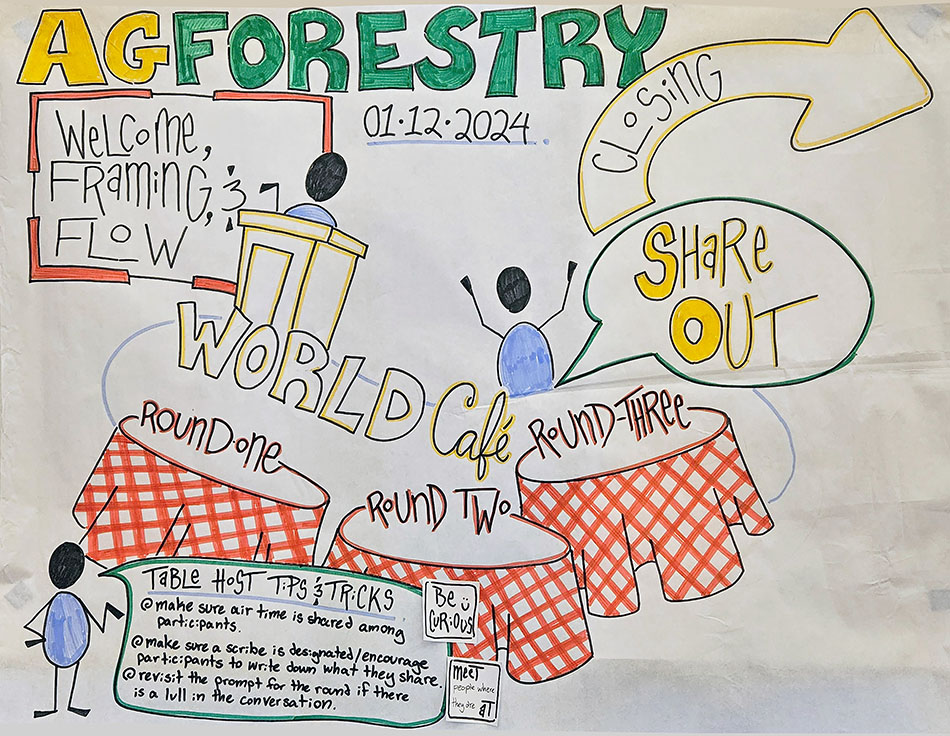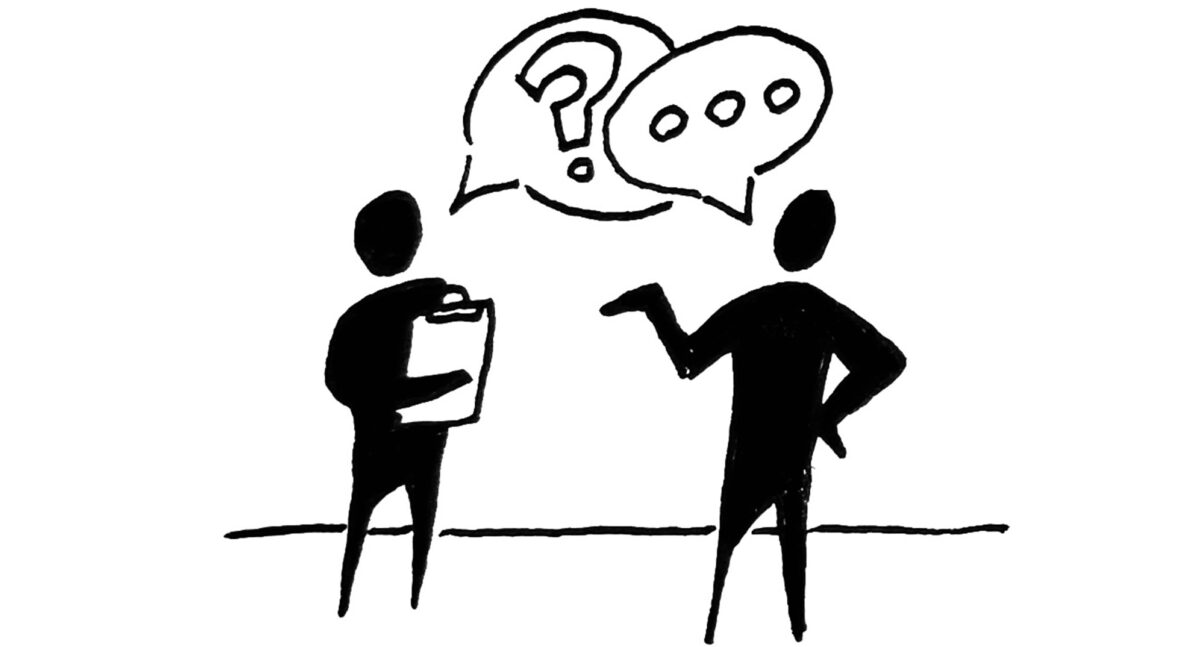Environment
Date: January 12, 2024
Time: 9:00 AM – 11:00 AM
Location: Smith Room, Odegaard Library, UW Seattle Campus
Number of Participants: 18
Hosts: Stephen Page (PhD), Craig Thomas (PhD), and Jessika Gill
The purpose of this World Café activity was to prompt participants in the Ag Forestry Leadership Program to think about what equity and environmental justice means in their field or sub-sector and explore the implications for their own work by creating actionable next steps.
Leading up the World Café, participants had gone through two days of classroom learning for the program’s Leadership in Public Policy module. This included a panel discussion that encouraged them to think about operationalizing equity and justice within their fields and organizations, as well as a discussion led by Dr. Seba Bishu about Diversity Equity and Inclusion (DEI). Contextual material that came out of these discussions were used as a framework for questions and prompts. As participants began discussing the prompts during the World Café, they were asked to make sure all discussion points were recorded on the harvest sheets provided using markers, pens, and/ or sticky notes.
Three-Phase Design Process

The three-phase design process was used to organize the three rounds of World Café discussion: understanding ‘what is’ in round one, exploring what ‘might be’ in round two, and creating/ testing what ‘can be’ in round three.
Round One
How does your sub-sector think about equity and environmental justice? What is your community, organization, or coalition doing about it?
Participants were grouped based on their sub-sector for the first round: Private Agriculture, Corporate Agriculture & Forestry, and Public Sector. Each group was prompted to think on the definition of equity and environmental justice as it relates to their sub-sector, then hone in on 2-3 goals or initiatives that the community within their respective sub-sectors has already identified and/ or is working on.
Round Two
What’s missing? What adaptive challenges do you see? What questions/ideas do you have?
In round two participants were asked to move to a different table, with one volunteer from each sub-sector staying behind as ‘table host’ to recap the round one discussion to the new table participants. New participants were asked to identify what they perceived to be missing from the round one discussion for the sub-sector table they migrated to, what adaptive challenges there are in the goals/ initiatives that had been documented, ask clarifying questions, identify connections, provide resources, and stay curious.
Round Three
What’s next for your development as a leader? How can you apply the learnings from Round 2 and the other seminar sessions to advance the initiatives or goals identified in Round 1?
Participants returned to their original sub-sector tables for round three. As table hosts shared the round two discussions, participants were asked to consider the following: What’s next for you as a leader? How can you apply the learnings from round two to advance the initiatives or goals you identified in round one? Discuss takeaways, learnings, and surprises. Think about what you’re bringing back from the group you were in for round two that might be relevant to round one work.
Share Out

Round One
As the three sub-sector tables shared out initial thoughts and definitions around equity and environmental justice, many teams described steps they are already taking, as well as areas for improvement within their communities. Many also discussed the disparities between how this work is mandated compared to how the mandates are applied in practice. Although the specifics of how this work is mandated varied by sub-sector, all groups felt pressures and roadblocks around how to best navigate their challenges with DEI and environmental justice work.
Round Two
Participants returned to their original sub-sector tables at the end of round two and the table hosts summarized the discussion. There was no group share out for this round.
Round Three
Round three produced action-oriented results for each sub-sector group. Public Sector folks expressed that they see a need to meaningfully engage stakeholders and include more geographic diversity in their workplaces to best serve the diverse needs of Washington state. Corporate Agriculture & Forestry also saw a need to engage and communicate with stakeholders, as well as want to find ways to better integrate into local government. Private Agriculture expressed the need to act by getting involved in local government and find ways to advocate for their communities through storytelling.
Reflections
As the World Café came to a close, participants reflected on the activity. Many discussed how important it is to listen to new and differing perspectives, the importance of building community in their work, and how they appreciated being given the space to have difficult conversations in respectful ways. One program director stated, “Everyone could have done so much less these last few days, and everyone chose to do more.”
References
- (2023). Leading Courageously in Higher Education: The Art of Hosting and Harvesting Conversations that Matter. Seattle, Washington. Daniel J. Evans School of Public Policy & Governance.
- (2022). Leadership Program. AgForestry.https://agforestry.org/programs/


